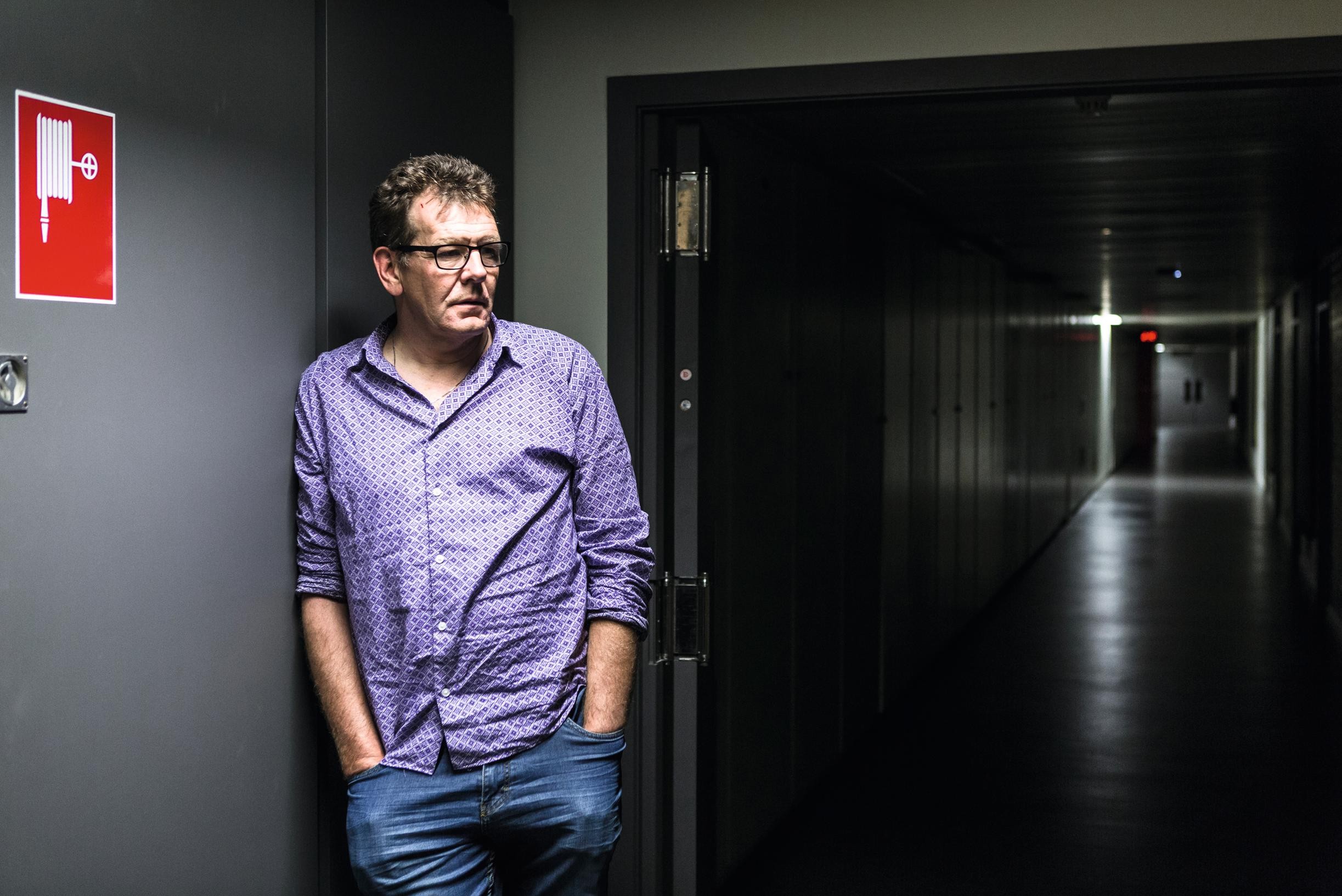© Frederik Buyckx
–
Three weeks ago, VRT journalist Chris Van den Abeele (57) was told that he has prostate cancer. An operation is urgently needed, but it has been postponed due to corona. In an open letter, he begs everyone to get vaccinated. Several hospitals recognize the problem of delayed care. And Kom op tegen Kanker also sounds the alarm. “The lives of cancer patients are at stake.”
–
Jens Vancaeneghem
—
“That was something new.” Thanks in part to those words, Chris Van den Abeele has acquired a quasi cult status. In his own inimitable style, he has been presenting the late broadcasts of the Radio 1 news for years. The VRT journalist is now throwing his weight into the equation to convince vaccine refusers.
ALSO READ. Cancer patient Chris Van den Abeele writes a note to vaccine refusers
In an open letter, which he himself read on the radio station, Van den Abeele tells how he was told three weeks ago that he has prostate cancer. About the urgent operation that is needed, but which may not be possible until January at the earliest.
“Since the last corona wave, there is still a catching up to do,” he writes. “The fourth corona wave makes the situation even worse ambitious.” Van den Abeele means that hospitals are now filling up with corona patients again. Relatively speaking, these are mainly unvaccinated people. “That is why I have a question for all those who have not been vaccinated or are not planning to,” the letter says. “Do you realize that you are part of a group responsible for delaying my treatment and that of countless other patients? And do you realize that – sorry for the drama – this could be a matter of life or death for me and them?”
Van den Abeele’s story is far from an isolated case. It is no coincidence that Kom op tegen Kanker also gives a cry for help. “Not in response to the journalist’s open letter. We have recently been receiving dozens, if not hundreds, of stories of diagnoses, treatments and even urgent operations being postponed,” says general manager Marc Michils. “The lives of cancer patients are at stake.”
Ten percent fewer operations
Several hospitals confirm that they are still fully processing the postponed care of the third corona wave and that the fourth wave is now on top of that. At UZ Leuven, they have decided to perform ten percent fewer operations to free up staff for corona patients in intensive care.
The hospitals we contacted emphasize that oncological procedures are still treated as a priority. “The situation differs greatly between regions and hospitals,” says Guy Hans, medical director of UZ Antwerp. “But if we postpone interventions, then it concerns, for example, prostheses or operations for cataracts. The implications for the entire healthcare system could be huge if the numbers don’t improve in the coming weeks.”
In addition, more than ever before, healthcare staff themselves are absent due to illness or quarantine. “Everyone has to take responsibility now,” says Michils. “Unvaccinated people should get vaccinated. Anyone who has already received a shot must strictly follow all measures and limit their contacts. Some have not yet realized exactly how acute the situation in healthcare is.”
— .

